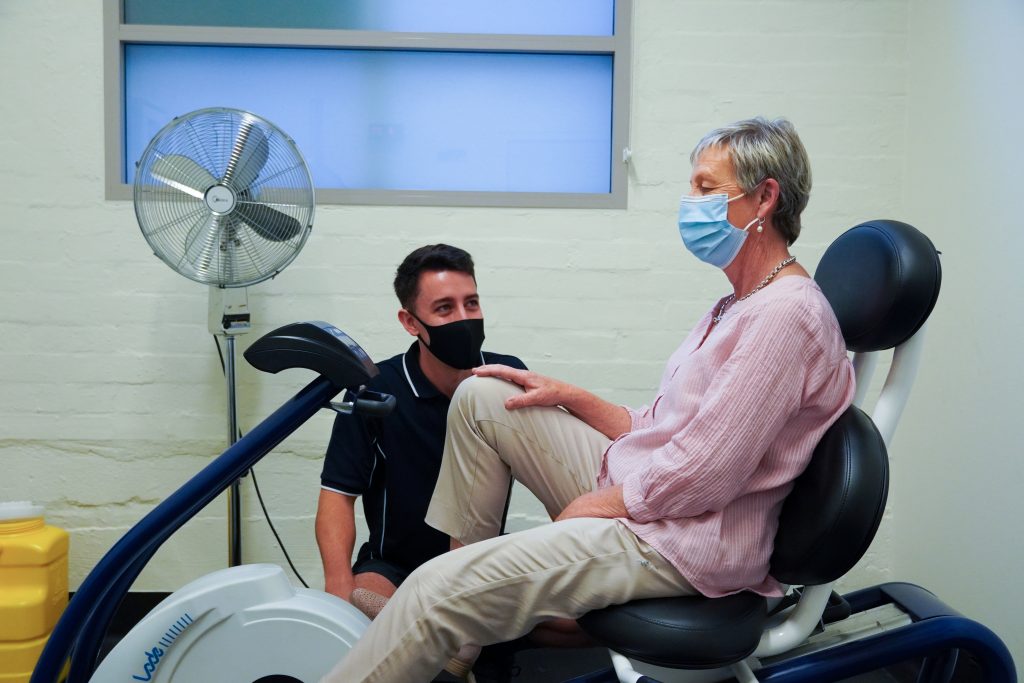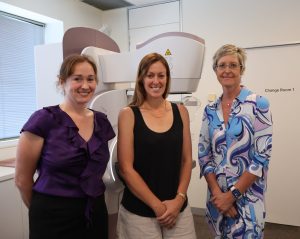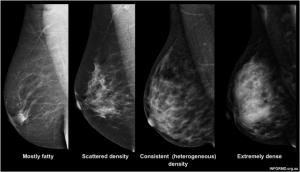Researchers at the Royal Adelaide Hospital (RAH) and the University of South Australia (UniSA) have found that women with breast cancer are more fearful of exercise, which may prevent some from benefitting from the important and safe aspect of treatment.
Researchers are also working on a tailored exercise program for breast cancer patients to protect the heart against the harmful effects of anticancer therapies.
The heart of the problem
Breast cancer patients have a higher risk of developing dysfunctional heart conditions due to the toxicity of chemotherapy.
Cardiovascular disease is the leading cause of non-cancer related death in survivors of breast cancer.
Exercise is known to be safe and beneficial highly beneficial for breast cancer patients.
“We know that exercise is good for patients who are undergoing chemo to help with side effects such as fatigue and nausea and can protect against cardiotoxicity,” says James Murray, lead researcher and PhD candidate at UniSA.
However, despite this, the research team have recently found that some patients are more fearful of exercise and have lower participation, compared to women without breast cancer.
“The common misconception is that people who are undergoing chemotherapy should be taking care of themselves by resting, not exerting themselves, and not exercising,” said Mr Murray.
For RAH Oncologist and co-author, Dr Sid Selva-Nayagam, the results of the study served as an eye-opener.
“I suppose I hadn’t realised how pervasive this fear of exercise was while people are having treatment. We obviously try and inform patients that it’s an important thing to do, but maybe it’s not being done as effectively with various clinicians and perhaps we have underestimated this issue,” he said.
Mr Murray hopes these research findings will serve as a reminder or a cue for clinicians to explicitly discuss the safety and benefits of exercise with their patients at the point of diagnosis.
“Patients place a lot of trust in the recommendations of their treating clinicians. Hearing from them that exercise is a safe and beneficial treatment before being referred to a clinical exercise physiologist should help to alleviate fear and uncertainty and increase exercise uptake,” he said.
Building the case for exercise
The research team are currently studying the protective effects to the heart of an exercise program for breast cancer patients undergoing chemotherapy.
They are recruiting patients from the RAH, The Queen Elizabeth Hospital and other hospitals around Adelaide for a randomised controlled trial which includes an eight-week moderate intensity exercise program.
Clinical exercise physiologists specialising in cancer care and medical oncology contributed to the development of the program, and the researchers will test its protective benefits on the heart using recently developed advanced echocardiography measures.
If the intervention shows a protective benefit, the researchers hope it could become part of standard practice breast cancer patients undergoing chemotherapy and may help to alleviate patient concerns and encourage greater exercise participation.



